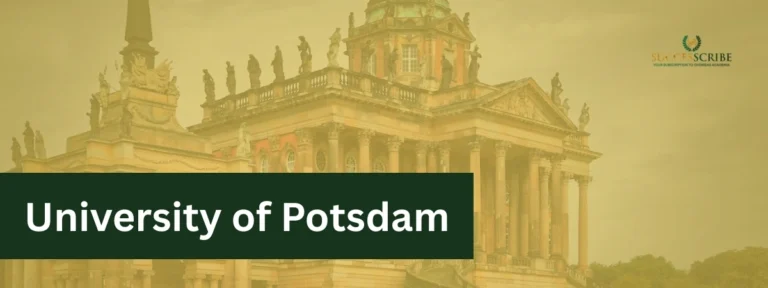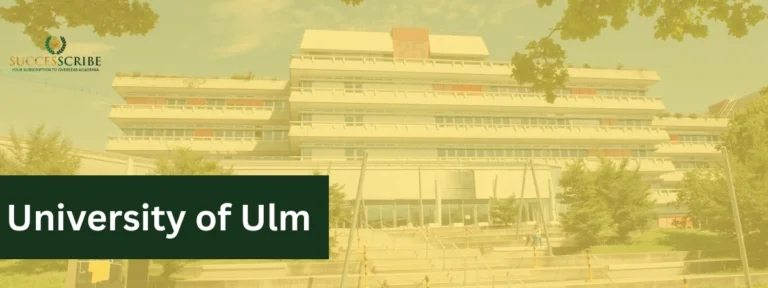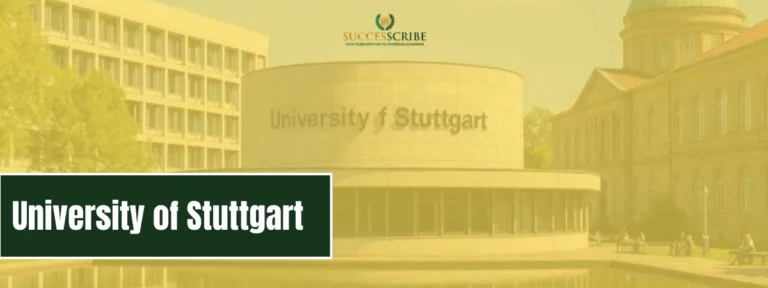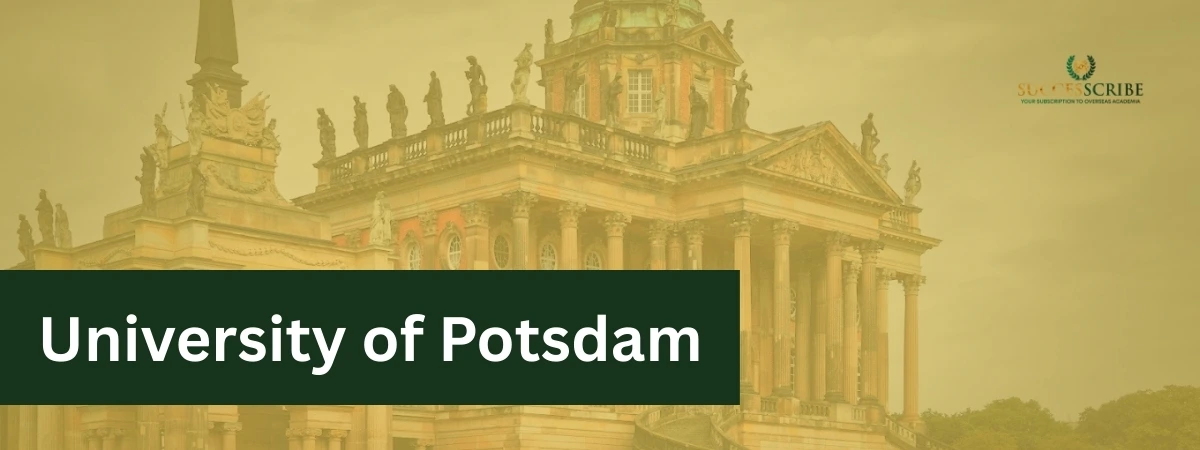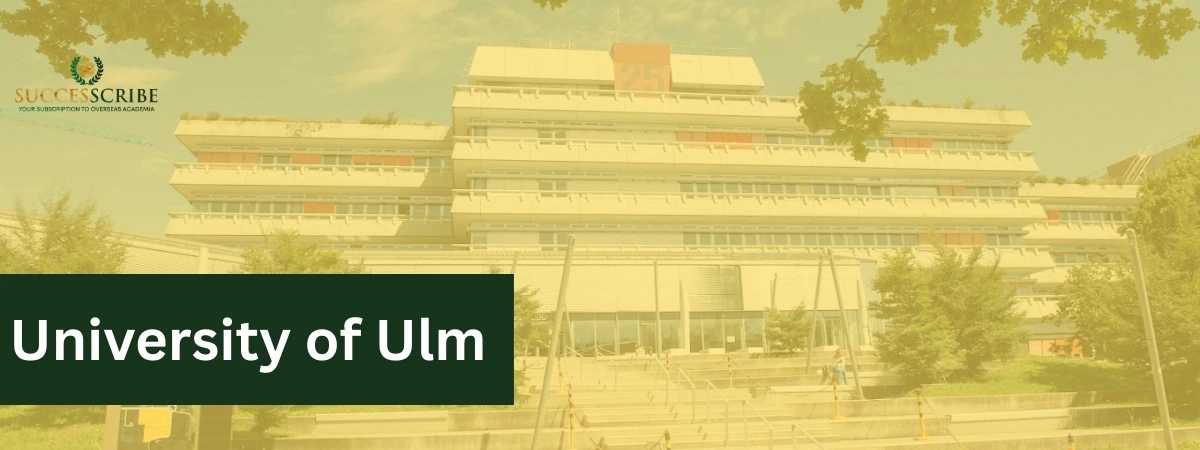Microbiology – the study of microscopic organisms, is pivotal in areas like healthcare, pharmaceuticals, agriculture, biotechnology, and environmental science. A Masters in Microbiology in USA equips students with rigorous research training and strong internship options, preparing them for careers in academia, industry, government labs, or continuing on to Ph.D. programs.
Key Highlights: Masters in Microbiology in USA
- Program Duration: 1.5 to 2 years (Full-time MS programs)
- Top Specializations: Virology, Immunology, Industrial Microbiology, Genetic Engineering
- Top Universities: Harvard, MIT, Stanford, Johns Hopkins, University of Wisconsin-Madison
- Tuition Fees: Approx. $20,000 – $60,000/year depending on university
- Average Salary After MS: $55,000 – $100,000/year (varies by role and experience)
- Popular Job Roles: Microbiologist, Clinical Lab Scientist, Biotech Analyst, Research Associate
- Scholarships Available: Fulbright, AAUW International Fellowships, Tata Scholarship, university-based aid
- Eligibility: Bachelor’s in Biology/Microbiology/Biotech + TOEFL/IELTS + (GRE if required)
- Job Growth Rate: +9% projected (2024–2030) – faster than average for science fields.
- Post-Study Work Option: OPT (1–3 years) + H-1B Visa Opportunities.
Why Study Masters in Microbiology in USA?
The United States is a global hub for microbiology education and research, offering unmatched academic infrastructure, industry connections, and post-study work opportunities for international students.
- Top Rankings: 8 of the world’s top 10 life science universities are in the USA (QS 2025), Harvard, MIT, Stanford, UC Berkeley, and more.
- Strong Research Funding: NIH funded over $9.8 billion in microbiology-related research in 2024; universities receive $45B+ annually in R&D grants.
- Specialized Programs: 150+ universities offer MS in Microbiology with thesis/non-thesis options and focus areas like molecular biology, clinical microbiology, and bioinformatics.
- Generous Funding: 65% of international students receive aid; RAs and TAs offer $1,800–$3,000/month stipends + tuition waivers.
- Industry Exposure: Study near biotech hubs like Boston, San Diego, and Raleigh; top recruiters include Pfizer, Genentech, CDC, and NIH.
- STEM OPT Advantage: Up to 3 years of post-study work allowed under F-1 visa OPT/STEM extension.
- Global Recognition: U.S. degrees open doors to Ph.D. programs, global careers, and high-paying industry roles worldwide.
Different Types of Master’s in Microbiology Courses Offered in the USA

Master’s programs in Microbiology in the USA are designed to cater to diverse academic interests and career goals. Below is a breakdown of the different types of Microbiology-focused Master’s degrees commonly offered by U.S. universities, along with what each type includes and who it is best suited for:
| Program Type | Description` | Ideal For |
| MS in Microbiology | Core microbiology covering bacteriology, virology, molecular methods, and host-pathogen biology. Thesis and non-thesis options available. | Students aiming for research labs or PhDs |
| MS in Molecular Microbiology & Immunology | Heavy emphasis on molecular mechanisms, immunological responses, and pathogen interactions. | Public health, pathogen biology, vaccine R&D |
| MS in Environmental Microbiology | Microbial ecology in soil, water, and pollution mitigation. Includes metagenomics and bioremediation topics. | Environmental agencies, NGOs, research labs |
| MS in Industrial / Food Microbiology | Microbial use in industry: fermentation, food safety, quality control, biotech production. | Biotech, food industry, QC roles |
| MS in Applied Microbiology / Public Health | Interdisciplinary blend of microbiology, epidemiology, and translational science. | Public health labs, disease control agencies |
| MS in Microbial Genetics & Genomics | Training in genomics, gene editing, sequencing pipelines, microbial evolution. | Bioinformatics, microbial gene regulation research |
Suggested Post: Masters in business analytics in USA
Top Universities for Masters in Microbiology in USA
The United States is home to some of the world’s most prestigious institutions for life sciences, microbiology, and biomedical research. These universities offer state-of-the-art research facilities, renowned faculty, and excellent funding options for graduate students.
| University | Program Name | Key Focus Areas |
| Harvard University | Master of Medical Sciences in Immunology | Microbial physiology, pathogenesis, immunobiology |
| Stanford University | MS in Microbiology & Immunology | Host–pathogen interactions, microbial genetics, bioinformatics |
| Massachusetts Institute of Technology (MIT) | MS in Biological Engineering (Microbiology track) | Systems biology, Synthetic microbiology, Biotech research |
| University of California, Berkeley | MS in Microbiology | Environmental microbiology, Fungal biology, Microbial ecology |
| Johns Hopkins University | MS in Molecular Microbiology and Immunology | Pathogen-host interactions, Microbial pathogenesis, Vaccinology |
| University of California, San Diego | MS in Microbiology | Marine microbiology, Microbial genomics, Metagenomics |
| University of Washington | MS in Microbiology | Molecular virology, Immunopathogenesis, Epidemiology |
| University of Michigan–Ann Arbor | MS in Microbiology & Immunology | Public health microbiology, parasitology, medical microbiology |
| University of Wisconsin–Madison | MS in Microbiology | Agricultural microbiology, Molecular genetics, Virology |
| Cornell University | MS in Food Science (Microbiology concentration) | Food microbiology, Microbial physiology, Infection biology |
Suggested Post: Masters in computer science in USA
Admissions Requirements for Master’s in Microbiology in the USA
Admission into a Masters in Microbiology in USA. is competitive, and most top programs assess a combination of academic merit, research experience, English proficiency, and professional potential. Here’s a full breakdown of what’s required:
1. Academic Qualification
Undergraduate Degree:
- A Bachelor’s degree in Microbiology, Biology, Biotechnology, Biochemistry, or a closely related life science.
- Some universities (e.g., University of Florida, UC Davis) accept applicants from interdisciplinary backgrounds provided core biology/chemistry/microbiology courses are completed.
Minimum GPA Requirement:
- Most universities require a minimum GPA of 3.0/4.0.
- Competitive programs like Johns Hopkins, UC Berkeley, and UW–Madison may expect ≥ 3.3–3.5.
- Some schools offer conditional admission or graduate preparation programs for candidates below the GPA threshold.
2. Standardized Test Scores (GRE)
- GRE General Test (Optional in Most Universities as of 2025):
- GRE is optional or waived by 65–75% of microbiology programs.
- Still required by a few (e.g., University of Georgia, University of Illinois Urbana-Champaign).
If required:
- Verbal Reasoning: 150–156
- Quantitative Reasoning: 155–160
- Analytical Writing: 3.5+
Submitting strong GRE scores can strengthen applications if your GPA is borderline
3. English Language Proficiency (For International Students)
Most universities accept IELTS, TOEFL, or Duolingo English Test (DET).
| Test | Minimum Requirement |
| IELTS | 6.5–7.5 (7.0 preferred) |
| TOEFL iBT | 80–100 (Top schools ≥ 100) |
Applicants with degrees from English-medium institutions in English-speaking countries may be exempt.
4. Statement of Purpose (SOP)
Key Components:
- Why you want to pursue an MS in Microbiology
- Specific areas of interest (e.g., microbial genetics, virology)
- Your academic background & lab experiences
- Career goals (research, Ph.D., industry)
- Why this particular university fits your research ambitions
5. Letters of Recommendation
How Many?
Usually 3 letters are required.
From Whom?
- Academic faculty, preferably from microbiology or life sciences
- Research supervisors from labs or internships
- Industry professionals (if work experience is relevant)
What They Should Highlight:
- Your academic performance
- Research aptitude
- Lab and analytical skills
- Communication and teamwork abilities
- Motivation and discipline
6. Resume or CV
A well-structured academic resume should include:
- Education history
- Research experiences
- Publications or presentations (if any)
- Lab techniques mastered (e.g., PCR, DNA sequencing, ELISA)
- Internships or work experience
- Volunteer or outreach activities
- Certifications (e.g., Bioinformatics, Molecular Biology)
7. Research Experience (Highly Preferred)
Most Top Programs Expect:
- 1–2 years of lab experience (undergraduate research, internships, assistantships)
- Capstone or thesis projects
- Experience in microbiology methods (culturing, staining, microscopy, molecular analysis)
Examples of Strong Research Experience:
- Summer research at institutes like NIH, CDC, ICMR, or a university.
- Undergraduate thesis involving microbiological data analysis or experiments.
- Contributions to published papers, even as a co-author.
Research experience distinguishes you from purely academic candidates and is often the deciding factor in top-tier admissions.
8. Application Portal & Fees
| Application Item | Typical Details |
| Application Fee | $75–$125 per university |
| Deadlines | December to February (Fall Intake) |
| Platform | University-specific portals or centralized systems (like SOPHAS for public health–related microbiology programs) |
9. Interviews (Not Always Required)
Some universities invite shortlisted candidates for faculty interviews (usually virtual via Zoom).
Interviews assess your:
- Understanding of microbiology principles
- Research motivations
- Communication skills
- Fit for the department
10. Supplemental Requirements (Sometimes Required)
Depending on the school:
- Writing Samples: Scientific reports, abstracts, or project summaries.
- Video Essay or Recorded Interview: Introduce yourself and explain your goals.
- Lab Skills Questionnaire: A checklist of techniques you’ve used.
Suggested Post: Masters in data analytics in USA
Curriculum & Research Opportunities for Master’s in Microbiology in the USA

The Masters in Microbiology in USA is designed to offer both a strong theoretical foundation and hands-on laboratory experience, enabling students to enter careers in research, diagnostics, industry, or pursue doctoral studies. Most U.S. universities offer flexible tracks, thesis-based (research-intensive) or non-thesis (coursework or project-based), allowing students to customize their training based on career goals.
1. Program Duration
- Thesis Track: 2 years (with research and dissertation)
- Non-Thesis Track: 1.5–2 years (more coursework-focused, may include a capstone or industry internship)
2. Core Curriculum (Courses You’ll Commonly Study)
While specific course titles and availability vary by university, most programs include the following core and advanced subjects:
Core Courses
| Subject Area | Example Courses |
| Microbial Physiology | Advanced Microbial Physiology, Microbial Metabolism |
| Microbial Genetics | Microbial Genetics, Molecular Genetics |
| Molecular Biology | Techniques in Molecular Biology, Recombinant DNA Technology |
| Immunology | Cellular & Molecular Immunology, Host-Pathogen Interaction |
| Biochemistry | Protein Structure, Enzymology, Metabolism |
| Biostatistics | Statistical Methods in Biology, Experimental Design |
Lab & Techniques Courses
| Techniques Focus | Skills Developed |
| Microbiology Lab Techniques | Culture methods, Gram staining, microscopy |
| Molecular Techniques | PCR, gel electrophoresis, DNA/RNA extraction |
| Bioinformatics & Genomics | NGS data analysis, genome annotation, BLAST |
| Research Ethics & Lab Safety | Proper lab conduct, BSL-1 to BSL-3 protocols |
3. Elective Courses (Choose Based on Interest)
| Specialization | Example Electives |
| Environmental Microbiology | Microbial Ecology, Environmental Biotechnology |
| Clinical Microbiology | Pathogenic Microbiology, Medical Virology |
| Industrial Microbiology | Fermentation Technology, Bioprocess Engineering |
| Virology | General Virology, Viral Pathogenesis |
| Food Microbiology | Foodborne Pathogens, Safety and Sanitation |
| Microbiome Studies | Human Microbiome, Metagenomics |
| Bioinformatics | Computational Biology, Systems Biology |
4. Thesis vs Non-Thesis Options
| Track | Focus | Outcome |
| Thesis Track | Academic & research-heavy | Original research project, written thesis, oral defense |
| Non-Thesis Track | Coursework + capstone/internship | Suitable for industry careers; may involve literature review or lab-based project |
Thesis Track is highly recommended for students considering a Ph.D. or R&D roles in biotechnology and healthcare sectors.
5. Research Opportunities
Research is a core component of most microbiology master’s programs in the U.S., especially in thesis-track routes. Here’s what students can expect:
Research Areas (2025 Trends)
- Antimicrobial resistance (AMR)
- Host-pathogen interactions
- Virology and emerging diseases
- Environmental and soil microbiology
- Bioremediation using microbes
- Microbiome research (gut, soil, marine)
- Synthetic biology and industrial enzyme production
- Vaccine development and immunotherapeutics
- Bacterial pathogenesis and genetic regulation
Real University Examples:
- Johns Hopkins University: Research in microbial pathogenesis, tuberculosis, and emerging viral infections.
- UC Davis: Focus on environmental microbiology, zoonotic diseases, and agri-biotech.
- University of Wisconsin–Madison: Leading work in fermentation microbiology and probiotics.
- Cornell University: Studies on microbial genetics, foodborne pathogens, and yeast biotechnology.
6. Access to High-End Facilities
Most universities provide access to cutting-edge equipment and labs. Common research infrastructure includes:
- BSL-2 and BSL-3 laboratories (for safe handling of infectious organisms)
- DNA sequencers and next-gen sequencing (NGS) labs
- CRISPR/Cas9 gene editing labs
- Mass spectrometry and proteomics facilities
- Bioinformatics clusters and supercomputers
- Cell culture facilities (human and microbial cells)
7. Research Assistantships (RA)
Students in thesis-track programs often receive Research Assistantships (RA). These provide:
- Monthly stipend ($1,800–$3,000)
- Full or partial tuition waiver
- Access to independent lab work and mentorship
- Conference travel grants (for presenting your work)
RAs are usually tied to a specific professor’s grant, so reach out to faculty whose research matches your interest before applying.
8. Publications and Conferences
Students often:
- Co-author journal papers (e.g., Journal of Bacteriology, Microbiology Spectrum)
- Present findings at conferences (ASM Microbe, ABRCMS, ISME)
- Gain competitive edge for Ph.D. admissions or industry jobs by showcasing research output.
9. Industry Collaborations & Internships
Many programs, especially those located in biotech hubs like Boston, San Francisco, and Raleigh, offer:
- Summer internships in pharmaceutical and biotechnology firms (e.g., Pfizer, Genentech, Thermo Fisher)
- Collaborative projects with national labs (e.g., NIH, USDA, EPA)
- Research park connections for students (e.g., Research Triangle Park, NC)
Example:
- At University of Florida, students work with industry partners on projects involving vaccine delivery and food safety microbiology.
- UC San Diego students participate in synthetic biology projects in collaboration with Salk Institute and Illumina.
10. Capstone / Applied Research (Non-Thesis Track)
For students in non-thesis tracks, many universities offer a capstone course or professional project, such as:
- Lab-based problem-solving
- Designing microbial bioprocesses
- Public health microbiology case studies
- Data-driven analysis of microbiome datasets
- Fieldwork-based environmental microbiology assessment
Capstone projects often mimic real industry or clinical roles and may be conducted in partnership with local health departments or private companies.
Suggested Post: Masters in digital marketing in USA
Fees & Funding for Masters in Microbiology in USA

Pursuing an MS in Microbiology in the U.S. involves both tuition and living expenses, but many students receive financial support through assistantships, fellowships, or external scholarships. Here’s a quick breakdown:
Tuition Fees Overview (Per Year)
| Type of University | Estimated Tuition (Per Year) |
| Public (In-State Students) | $15,000 – $25,000 USD |
| Public (Out-of-State Students) | $25,000 – $40,000 USD |
| Private Universities | $40,000 – $60,000+ USD |
Estimated Annual Costs
| Expense Category | Public University (In-State) | Public (Out-of-State) / Private |
| Tuition Fees | $15,000 – $25,000 | $30,000 – $60,000 |
| Living Expenses | $15,000 – $20,000 | $15,000 – $22,000 |
| Health Insurance & Fees | $1,500 – $2,500 | $1,500 – $3,000 |
| Total Per Year | $31,500 – $47,500 | $46,500 – $85,000 |
Costs vary by university location. Cities like Boston, NYC, and San Francisco are on the higher end.
Funding Options
| Funding Type | Details |
| Research Assistantship (RA) | Monthly stipend + full/partial tuition waiver. Linked to lab research. |
| Teaching Assistantship (TA) | Paid to help teach undergrad labs/lectures. Often includes tuition waiver. |
| University Fellowships | Merit-based, competitive, usually for top applicants. May cover full costs. |
| External Scholarships | NSF GRFP, Fulbright, Inlaks, DAAD, and home-country government scholarships. |
| On-Campus Jobs | Up to 20 hrs/week allowed on F-1 visa; can earn $300–$600/month. |
Suggested Post: Masters in electrical engineering in USA
Demand & Career Prospects for Master’s in Microbiology in the USA

The demand for microbiologists in the USA is steadily growing, especially due to the increasing focus on infectious diseases, public health, biotechnology, and environmental sustainability. The U.S. Bureau of Labor Statistics (BLS) projects a 5% job growth for microbiologists between 2022 and 2032, which is about as fast as the national average.
Career Roles After MS in Microbiology
| Job Title | Average Salary (Annual) |
| Microbiologist | $65,000 – $90,000 |
| Research Scientist (Biotech) | $75,000 – $105,000 |
| Clinical Lab Scientist | $60,000 – $85,000 |
| Quality Assurance Analyst | $65,000 – $95,000 |
| Biomedical Scientist | $70,000 – $100,000+ |
| Regulatory Affairs Specialist | $60,000 – $90,000 |
Top Industries Hiring: Biotechnology firms, pharmaceutical companies, CDC, NIH, USDA, hospitals, academic research labs, and food companies.
Optional Practical Training (OPT) & H-1B Advantage
International students in Microbiology (a STEM field) are eligible for up to 3 years of OPT after graduation, giving them a competitive edge to gain U.S. work experience and transition to H-1B visas.
Salaries of Grdautes after completing Masters in Microbiology in USA
- Entry-level (Master’s qualified): $60K–$80K
- Mid-career: $80K–$100K+
- Senior / managerial: $100K–$120K+
- Ph.D. positions: Typically higher, but varies.
For example, clinical microbiologists in hospital labs average ~$70K–$95K/year, with senior or lead roles pushing beyond $100K.
Suggested Post: Masters in information technology in USA
Fully Funded Master’s Programs in Microbiology in the USA
While full funding is more common at the PhD level, several U.S. universities offer competitive funding packages for outstanding Master’s in Microbiology students, often through graduate assistantships, research grants, or university scholarships.
Universities Offering Fully Funded or Partially Funded MS Microbiology Programs
| University | Type of Funding | Details |
| University of Wisconsin–Madison | Teaching/Research Assistantships | Covers full tuition + $25,000 stipend/year |
| University of Florida | Graduate Assistantships | Full tuition waiver + $21,000–$28,000/year stipend |
| Cornell University | Fellowships + Assistantships (select cases) | Partial/Full tuition waiver + living stipend |
| Michigan State University | Research Assistantships (RA) | Full tuition + ~$24,000 stipend depending on department |
| University of Georgia | Tuition Waiver + Assistantships | Full tuition + $22,000–$26,000 stipend |
Funding is typically merit-based, and competitive. Early application and strong academic/research background significantly improve chances.
Suggested Post: Scholarships for Masters in USA
Top Scholarships for MS in Microbiology in the USA (for International Students)
Financial assistance can significantly reduce the burden of studying in the U.S. Many universities and organizations offer scholarships and fellowships to talented international students pursuing microbiology.
- Fulbright Foreign Student Program
- AAUW International Fellowships
- Joint Japan/World Bank Graduate Scholarship
- Agha Khan Foundation International Scholarship
- Rotary Foundation Global Grant
- Hubert H. Humphrey Fellowship Program
- Inlaks Shivdasani Foundation Scholarships
- Tata Scholarship for Indian Students at Cornell University
- Stanford Knight-Hennessy Scholars Program
- University-specific Scholarships (e.g., Harvard GSAS Fellowships, MIT Research Assistantships)
Conclusion
With over 150+ universities, $45 billion in annual research funding, and a 3-year STEM OPT visa advantage, the USA isn’t just a place to study microbiology; it’s where future scientists are built. Whether you’re aiming for groundbreaking lab research, high-paying biotech roles, or a global PhD opportunity, an MS in Microbiology from the U.S. is your launchpad. In a world where microbes matter more than ever, your career starts right here, right now, in the labs of the United States. Fuel your future with a Masters in Microbiology in USA, where every cell you study could lead to the next medical breakthrough.
FAQs
Do microbiology graduates in the USA get high-paying jobs?
Yes. With experience, MS in Microbiology graduates in the USA can earn salaries ranging from $60,000 to over $100,000 annually, especially in pharmaceuticals, biotech R&D, and healthcare diagnostics.
What are the career prospects after completing a Masters in Microbiology in USA?
Graduates can work in pharmaceutical companies, research labs, biotech firms, hospitals, and government agencies in roles like microbiologist, lab analyst, clinical researcher, or quality control officer. Many also go on to pursue PhDs.
Is GRE required for MS in Microbiology in USA?
Some universities require GRE scores, while many have waived the requirement post-COVID. Always check individual program requirements for the latest updates.
What documents are needed to apply for Masters in Microbiology in the USA?
You’ll typically need:
1. Academic transcripts
2. GRE (if required)
3. TOEFL/IELTS scores
4. Letters of Recommendation
5. Statement of Purpose
6. CV/Resume
7. Passport copy
8. Application fee receipt
What is the average salary after completing a Masters in Microbiology in the USA?
Entry-level professionals earn $55,000–$75,000/year, and with experience or a PhD, salaries can rise to $100,000+ annually, especially in biotech and pharmaceutical sectors.
Related Post
Masters in mechatronics in USA
Masters in mathematics in USA
Masters in international business in USA
Masters in interior design in USA




